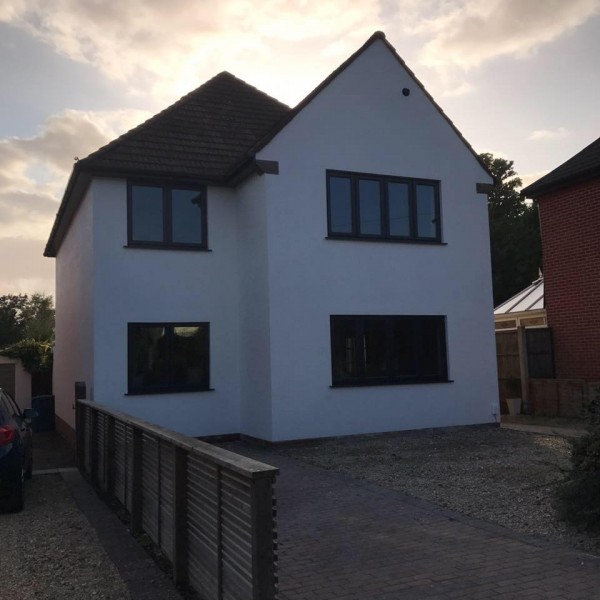Loft Conversions in Poole
Welcome to Mountbank Developments, your premier choice for all building and refurbishment needs in New Milton and across Hampshire. As a... read more »
Welcome to Hari-Construction Services Ltd, your trusted partner for all building and property maintenance needs in Rossmore and across Do... read more »
Welcome to DPB Construction Ltd, your trusted partner for all construction needs in Turlin Moor and throughou... read more »
Welcome to RM Construction & Maintenance Ltd, your premier choice for Builders, Extension Builders, Property Maintenance, Loft Conversion... read more »
Welcome to ML Quality Home Improvements Ltd., your go-to experts for property maintenance and home improvement services in Westbourne and... read more »
Welcome to Ashland Builders Ltd, your premier choice for exceptional building services in Longfleet, Poole, and across D... read more »
Welcome to Seraphim Projects, your premier choice for Builders, Extension Builders, Loft Conversions, Kitchen Installation, and Bathroom... read more »
Welcome to Torpey Ltd, the premier choice for all your building and renovation needs in Bournemouth and across Dorset. As a distinguished... read more »
Welcome to Studio Essen Ltd., the leading experts in renovations, home office conversions, loft conversions, and extension buildi... read more »
Welcome to FBS Construction, your trusted partner for all building needs in Ferndown and across Dorset. As leading extension builders, ba... read more »
Bournemouth Building Services is a p... read more »
Welcome to Brothers Build Ltd, your trusted partner f... read more »
Oakdale Building Solutions is a prem... read more »
Welcome to SC Builders, your go-to experts for all bu... read more »
Welcome to... read more »
Welcome to Universal Building Company South Ltd, your... read more »
Welcome to MM Carpentry, your trusted partner for exc... read more »
Welcome to Clark Property Services, your trusted part... read more »
MWL Carpentry And Building, nestled... read more »
Search Loft Conversions in places nearby
Understanding Loft Conversions in Poole
Loft conversions in Poole have become a popular choice for homeowners looking to expand their living space without the hassle of moving. With the town's picturesque coastal setting and a growing demand for housing, converting a loft can be a smart investment. This article will explore the various aspects of loft conversions, providing a comprehensive guide to help you make informed decisions.
The Benefits of Loft Conversions
Loft conversions offer numerous advantages. Firstly, they maximise the use of existing space, turning an underutilised attic into a functional area. This can significantly increase the value of your property, making it an attractive option for those considering future resale. Additionally, loft conversions can provide much-needed extra space for growing families or create a dedicated home office, enhancing your quality of life.
Increased Property Value
One of the most compelling reasons to consider a loft conversion is the potential increase in property value. In Poole, where property prices are on the rise, adding an extra bedroom or living area can yield a substantial return on investment. According to property experts, a well-executed loft conversion can increase a home's value by up to 20%.
Enhanced Living Space
Loft conversions can transform your home by providing additional living space. Whether you need an extra bedroom, a playroom for the kids, or a quiet retreat, a loft conversion can be tailored to meet your specific needs. This flexibility makes it an ideal solution for families who require more space but wish to remain in their current home.
Types of Loft Conversions
There are several types of loft conversions to consider, each with its own set of benefits and considerations. The most common types include dormer, hip-to-gable, mansard, and roof light conversions. Understanding the differences between these options can help you choose the best fit for your home.
Dormer Loft Conversions
Dormer conversions are one of the most popular choices due to their versatility and cost-effectiveness. This type involves extending the existing roof to create additional headroom and floor space. Dormers can be added to various parts of the roof, providing flexibility in design and layout.
Hip-to-Gable Loft Conversions
Hip-to-gable conversions are ideal for semi-detached or detached homes with a hipped roof. This conversion involves extending the sloping side of the roof to create a vertical wall, increasing the internal space. It's a great option for those looking to maximise the potential of their loft area.
Mansard Loft Conversions
Mansard conversions offer the most space but are also the most complex and costly. This type involves altering the entire roof structure, creating a flat roof with steeply sloping sides. Mansard conversions are often used in urban areas where space is at a premium, providing a significant increase in living area.
Roof Light Loft Conversions
Roof light conversions are the simplest and most cost-effective option, as they involve minimal structural changes. This type of conversion adds windows to the existing roof, allowing natural light to flood the space. While it may not provide as much additional space as other types, it's a great option for those on a budget.
Planning Permission and Building Regulations
Before embarking on a loft conversion in Poole, it's essential to understand the planning permission and building regulations requirements. While many loft conversions fall under permitted development rights, some may require planning permission, especially if your property is in a conservation area or has specific restrictions.
Permitted Development Rights
In many cases, loft conversions can be carried out under permitted development rights, meaning you won't need to apply for planning permission. However, there are specific criteria that must be met, such as the volume of the new space and the height of the roof. It's crucial to check with the local planning authority to ensure compliance.
Building Regulations
Regardless of whether planning permission is required, all loft conversions must comply with building regulations. These regulations ensure that the conversion is structurally sound, safe, and energy-efficient. Key areas covered include fire safety, insulation, and structural integrity. Hiring a qualified architect or builder can help navigate these requirements.
Choosing the Right Contractor
Selecting the right contractor is a critical step in ensuring a successful loft conversion. With numerous builders offering their services in Poole, it's important to do your homework and choose a reputable company with experience in loft conversions.
Research and Recommendations
Start by researching local contractors and seeking recommendations from friends or family who have undertaken similar projects. Online reviews and testimonials can also provide valuable insights into a contractor's reliability and quality of work.
Obtaining Quotes
Once you've shortlisted potential contractors, obtain detailed quotes from each. These should include a breakdown of costs, timelines, and the scope of work. Comparing quotes will help you make an informed decision and ensure you get the best value for your money.
Checking Credentials
Ensure that your chosen contractor is fully qualified and insured. Membership in professional bodies, such as the Federation of Master Builders, can indicate a commitment to high standards. Don't hesitate to ask for references and view previous projects to assess the quality of their work.
Design Considerations for Loft Conversions
Design plays a crucial role in the success of a loft conversion. From layout and lighting to materials and finishes, careful planning can transform your loft into a stylish and functional space.
Maximising Space
Effective space planning is essential in a loft conversion. Consider the placement of furniture, storage solutions, and access points to make the most of the available area. Built-in storage and multi-functional furniture can help maximise space and keep the room clutter-free.
Lighting and Ventilation
Natural light and ventilation are key elements in creating a comfortable loft space. Incorporate roof windows or skylights to allow sunlight to flood the room. Additionally, ensure adequate ventilation to prevent condensation and maintain air quality.
Choosing Materials and Finishes
The choice of materials and finishes can significantly impact the overall look and feel of your loft conversion. Opt for high-quality materials that complement the existing style of your home. Consider using sustainable materials to enhance the eco-friendliness of your project.
Cost Considerations for Loft Conversions
Understanding the costs involved in a loft conversion is crucial for budgeting and planning. While prices can vary depending on the type and complexity of the conversion, there are several factors to consider when estimating costs.
Factors Affecting Cost
The cost of a loft conversion can be influenced by various factors, including the size of the space, the type of conversion, and the quality of materials used. Additional costs may arise from planning permission, building regulations, and professional fees.
Budgeting for Your Loft Conversion
Creating a detailed budget is essential to avoid unexpected expenses. Include all potential costs, such as design fees, construction costs, and contingency funds for unforeseen issues. A well-planned budget will help ensure your project stays on track financially.
Financing Options
If you're concerned about the cost of a loft conversion, there are several financing options available. Home improvement loans, remortgaging, or using savings are common ways to fund a conversion. It's important to explore all options and choose the one that best suits your financial situation.
Frequently Asked Questions
- Do I need planning permission for a loft conversion in Poole? In many cases, loft conversions fall under permitted development rights, but it's essential to check with the local planning authority.
- How long does a loft conversion take? The duration of a loft conversion can vary depending on the complexity of the project, but it typically takes between 6 to 12 weeks.
- Can all lofts be converted? Not all lofts are suitable for conversion. Factors such as head height, roof structure, and access must be considered.
- What is the most cost-effective type of loft conversion? Roof light conversions are generally the most cost-effective, as they involve minimal structural changes.
- Will a loft conversion add value to my home? Yes, a well-executed loft conversion can significantly increase the value of your property.
- How can I ensure my loft conversion complies with building regulations? Hiring a qualified architect or builder can help ensure your conversion meets all necessary building regulations.
Loft conversions in Poole offer an excellent opportunity to enhance your home, providing additional space and increasing property value. By understanding the different types of conversions, planning requirements, and design considerations, you can embark on a successful project that meets your needs and budget. With careful planning and the right contractor, your loft conversion can become a valuable and stylish addition to your home.
Send a message














